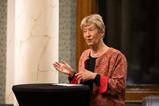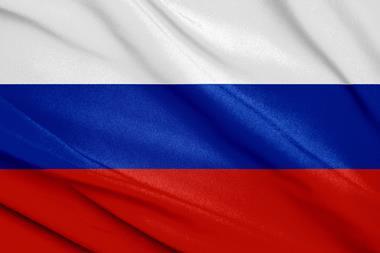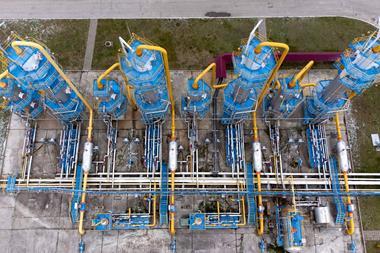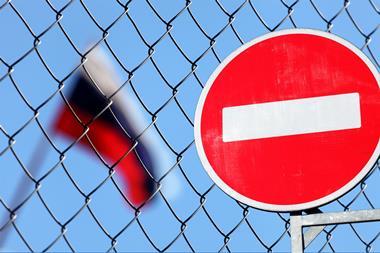Over the past five years, Russia has lost around 50,000 scientists, a senior member of the Russian Academy of Sciences (RAS) has revealed. ‘The main problem in Russia is this: over the past five years only Russia – no other country – has lost so many workers in the scientific field,’ said the vice-president of the Russian Academy of Sciences, Valentin Parmon, the Interfax news agency reported. He added that he hoped the Russian finance ministry could be convinced to triple funding to match spending in technologically developed countries.
The release of the figures at a meeting of the RAS comes shortly after news that at least three Russian scientists who have worked on hypersonic missile development had been arrested on suspicion of ‘high treason’ over the past year. Reports suggest that at least one of the scientists was arrested because they had allegedly passed data containing state secrets to China.
However, an open letter published by staff at the Institute of Theoretical and Applied Mechanics says that ‘open sources’ have revealed that the acts for which the scientists were arrested were an ‘obligatory component of conscientious and high-quality scientific activity’ – making presentations at international seminars, publishing articles in high-ranking journals and participating in international scientific projects.
Experts describe the exodus of scientists from Russia as ‘concerning’ and say it is important to maintain engagement with those remaining in the country to ensure they are not cut off from the global community and that scientific lines of communication remain open.
A professor of Russian origin, now at a top UK university, who wished to remain anonymous told Chemistry World that this was not the first time significant numbers of scientists had left Russia to pursue opportunities elsewhere. ‘When her borders were open after the August revolution in 1991, and even slightly before then a number of internationally renowned scientists moved to the west, majorly to the United States, which offered excellent academic positions upfront,’ he explains.
‘They were then slowly followed by their former associates, a flow of postdocs and, even later, people understood they should do their PhD abroad because then they would learn the system, have more contacts, and grow,’ he adds. ‘The main reason for that was the stagnated character of Russian science by the end of perestroika, poor funding, practical absence of university science in Russia, and unclear mechanisms of career growth for the young. Plus, of course, the curiosity to see the world and learn different cultures.’
The professor says this trend ‘weakened’ when Russia overcame the ‘hardships’ of the 1990s and the transition from the old centrally planned Soviet economy to a market-based one. ‘The fast growth of the economy changed the environment for scientists; measures were taken to attract them to continue working in Russia, and some of those who had left to return. For example, Skoltech [Institute of Science and Technology in Moscow] was built with the participation of [the Massachusetts Institute of Technology] – a joint enterprise.’
Prospects ruined
However, he says the war in Ukraine has ‘ruined’ that emerging prosperity ‘in one blow’. ‘It has totally changed the climate in the country destroying that slow formation of the civil society and democratic institutes, and freedoms that people started to enjoy over the last 30 years,’ he adds.
‘Many Russians made the decision to leave the country, initially for political reasons but then, with the beginning of mobilisation, for personal reasons. The exact number is not known, but different agencies estimate between 500,000 to 1 million [have fled the country].’
However, the professor says many established scientists stayed behind, whether to care for old parents or because they felt that, by leaving they were ‘betraying’ their students and associates in the laboratories they lead. ‘Before the peace comes back to that part of the world, it would not be appropriate to encourage those who left to return, or to expect them to flow back in the near future, in spite of all hardships of their current indefinite situation. But this is, of course, the choice of each individual,’ he adds.
Nicholas Talbot, executive director of The Sainsbury Laboratory in Norwich, told Chemistry World that solving the world’s most serious scientific challenges, such as the climate emergency, could not be achieved without the engagement of the Russian scientific community. ‘It is simply too big a country and too much of the land surface of the planet to not be part of climate solutions,’ he says. ‘The same is true of many other global concerns, such as food security, the response to infectious diseases and sustainable development. Furthermore, the provision of dispassionate scientific evidence has to be provided to the regime in charge there, in spite of our objections to its nature and actions.’
Talbot adds that even during the cold war there was always rational scientific dialogue between all parties which became ‘critical’ at times. ‘We should be concerned about the exodus, however understandable, and also take a rational view on maintaining engagement with scientists in Russia,’ he adds. ‘It is important they are not cut off from the global community, in spite of the awful actions of their government.’
Nina Federoff , a former scientific adviser to the Bush and Obama administration and past president of the American Association for the Advancement of Science, says that Russia has had a ‘history of haemorrhaging scientists’ and educated people in general. ‘Lots left in 1917 – my family included – then the [Berlin] wall went up and there wasn’t another massive exodus until the Soviet Union disintegrated,’ she adds. ‘Now more scientists are leaving. The fact of the matter is that science is a global affair and scientists do pretty well when they move to countries with less despotic regimes.’

















No comments yet